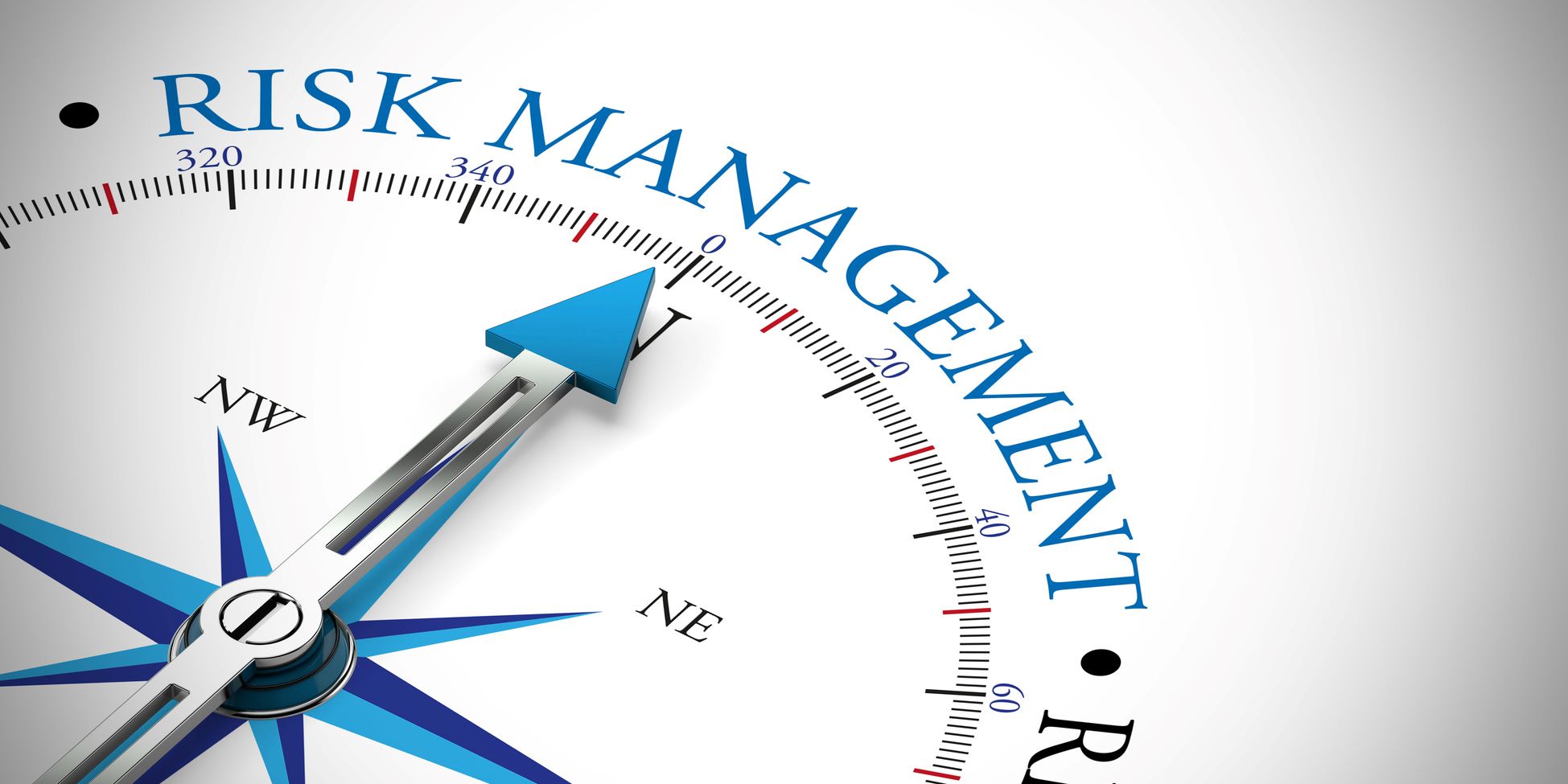

Finance
How To Buy A Car With Business Credit
Published: January 14, 2024
Learn how to purchase a car using your business credit with our expert finance tips. Boost your financial strategies and get the vehicle you need.
(Many of the links in this article redirect to a specific reviewed product. Your purchase of these products through affiliate links helps to generate commission for LiveWell, at no extra cost. Learn more)
Table of Contents
- Introduction
- Understanding Business Credit
- Building Business Credit
- Benefits of Buying a Car with Business Credit
- Preparing to Buy a Car with Business Credit
- Researching Car Options
- Finding Financing for the Car
- Applying for a Car Loan with Business Credit
- Negotiating the Purchase
- Finalizing the Car Purchase
- Maintaining Business Credit After Buying a Car
- Conclusion
Introduction
Buying a car for your business can be a significant investment, but did you know that you can use your business credit to finance the purchase? Having a strong business credit profile not only benefits your company’s financial stability, but it can also open up opportunities for business expenses like buying a company vehicle. In this article, we will explore how to buy a car with business credit, the benefits of doing so, and the steps to prepare for and finalize the purchase.
First, it’s crucial to understand what business credit is and how it differs from personal credit. Business credit is a separate entity from your personal credit and is used to assess the creditworthiness of your company. Building a solid business credit profile requires establishing a separate legal entity, such as a limited liability company (LLC) or corporation, and diligently managing your business’s finances and credit obligations.
Building strong business credit involves establishing vendor accounts, obtaining business credit cards, and making timely payments on your business obligations. By doing so, you demonstrate to lenders and creditors that your business is financially responsible and trustworthy. Building a positive credit history for your business can increase your chances of securing favorable financing options, including a car loan.
The benefits of buying a car with business credit are numerous. Firstly, it separates your personal and business finances, ensuring that your personal credit and assets are protected. Additionally, using business credit for a car purchase can improve your company’s cash flow by preserving your working capital for other business expenses.
Understanding Business Credit
Business credit is a crucial aspect for any company’s financial stability and growth. It is a measurement of a business’s creditworthiness and its ability to fulfill financial obligations. Just like personal credit, business credit helps lenders and suppliers determine whether a company is a reliable borrower or customer.
Business credit is separate from personal credit. Even if you have an excellent personal credit score, it doesn’t automatically translate to a good business credit score. Establishing and maintaining business credit requires a separate process and consideration of different factors.
There are several key components to understand when it comes to business credit:
- Dun & Bradstreet (D&B) Number: This is a unique identifier assigned to your business by Dun & Bradstreet, a credit reporting agency. It helps businesses track your credit history and evaluate your creditworthiness.
- Business Credit Score: Similar to personal credit scores, business credit scores indicate the likelihood of a business repaying its debts. There are different credit bureaus that provide business credit scores, such as Dun & Bradstreet, Experian, and Equifax.
- Trade References: These are vendors, suppliers, or lenders that your business has a financial relationship with. Good payment history with trade references can positively impact your business credit score.
- Payment History: Timely payments on your business obligations are essential for building a strong credit profile. Late payments or defaults can negatively impact your business credit score.
- Credit Utilization: This refers to the percentage of available credit that a business utilizes. Keeping credit utilization low demonstrates responsible credit management and can improve your business credit score.
Understanding these components is vital in managing and improving your business credit. By establishing a positive credit history and maintaining good payment habits, you can increase your business’s creditworthiness and open up opportunities for financing, including purchasing a car with business credit.
Building Business Credit
Building a strong business credit profile is crucial for accessing favorable financing options and growing your company’s financial stability. Here are some steps to help you build and improve your business credit:
- Incorporate your business: Establish your business as a legal entity, such as a limited liability company (LLC) or corporation. This separates your personal and business finances and helps build credibility with lenders and creditors.
- Obtain an Employer Identification Number (EIN): An EIN serves as a unique identifier for your business and is necessary for establishing business credit. You can obtain an EIN from the Internal Revenue Service (IRS) at no cost.
- Open business bank accounts: Open a dedicated business bank account to handle all your business transactions. This will help keep personal and business finances separate and make it easier to track your business’s financial activities.
- Establish trade lines: Apply for vendor credit accounts and trade lines to start building your business credit history. Make sure to choose vendors that report payments to business credit bureaus.
- Apply for a business credit card: A business credit card allows you to make purchases and build credit for your business. Select a credit card that reports payment activity to business credit bureaus.
- Make timely payments: Pay all your business obligations on time, including vendor invoices, trade lines, and credit cards. Timely payments demonstrate your business’s creditworthiness and help boost your business credit score.
- Monitor your business credit: Regularly review your business credit reports from credit bureaus like Dun & Bradstreet, Experian, and Equifax. Ensure that the information is accurate and address any discrepancies or errors immediately.
- Establish relationships with lenders: Building relationships with lenders can provide you with additional financing options in the future. Start by applying for small loans or lines of credit and make timely payments to establish trust.
Building business credit is a gradual process that requires consistency and responsible financial management. By following these steps and maintaining good credit practices, you can establish a solid business credit profile and increase your chances of securing favorable financing options, including financing the purchase of a car for your business.
Benefits of Buying a Car with Business Credit
Using your business credit to buy a car offers several advantages for your company. Here are some of the key benefits:
- Separation of personal and business finances: Purchasing a car with business credit helps separate your personal and business expenses. This separation simplifies bookkeeping and tax filing, making it easier to track and manage your business’s financial transactions.
- Preservation of working capital: By financing a car with business credit, you can preserve your working capital for other business needs. Instead of depleting cash reserves to buy a car, you can allocate those funds towards business growth, marketing initiatives, or investing in new equipment.
- Builds business credit history: Making timely payments on a car loan helps build a positive credit history for your business. With a solid credit history, you enhance your business’s creditworthiness, increasing the likelihood of securing favorable terms for future financing needs.
- Tax advantages: Depending on your circumstances, you may be eligible for tax deductions when buying a car for your business. Consult with a tax professional to understand the tax benefits available to your business.
- Professional image: Owning a company car can enhance your business’s professional image. It provides a sense of legitimacy and credibility, especially if your business often interacts with clients or partners.
- Convenience and accessibility: Having a dedicated company vehicle can improve the efficiency of your business operations. It allows you and your employees to easily travel between locations, attend meetings, and transport equipment or products.
Overall, buying a car with business credit offers financial flexibility, tax benefits, and the opportunity to strengthen your business’s credit profile. It is important to consider these benefits and weigh them against the associated costs and responsibilities before making a decision.
Preparing to Buy a Car with Business Credit
Before jumping into the process of buying a car with business credit, it’s essential to do some preparation. Here are the key steps to take:
- Assess your business’s financial health: Review your business’s financial standing to ensure it can handle the ongoing expenses of car ownership. Consider factors such as cash flow, existing debt obligations, and projected future expenses.
- Set a budget: Determine how much you can afford to spend on a car while staying within your business’s financial means. Consider not just the purchase price but also ongoing expenses like maintenance, insurance, and fuel.
- Check your business credit score: Obtain a copy of your business credit report and evaluate your creditworthiness. If your business credit score is low, take steps to improve it before applying for a car loan.
- Gather necessary documents: Prepare the required documents to support your loan application. This may include your business’s financial statements, tax returns, bank statements, and any other documents requested by potential lenders.
- Research lenders and financing options: Explore different lenders and financing options available for purchasing a car with business credit. Compare interest rates, terms, and repayment options to find the best fit for your business.
- Consider down payment options: Evaluate whether you will make a down payment on the car or opt for 100% financing. A down payment can lower the loan amount and potentially improve your loan terms.
- Review vehicle needs: Assess your business’s transportation needs to determine the type of car that best suits your requirements. Consider factors such as passenger capacity, cargo space, fuel efficiency, and any specific features required for your industry.
- Research car prices and negotiate: Research the market value of the car you’re interested in and be prepared to negotiate the price. Compare prices from different dealerships to ensure you are getting a fair deal.
By undertaking these steps and adequately preparing, you can be confident in your decision to buy a car with business credit. Preparing in advance helps streamline the process, increases your chances of securing favorable financing terms, and ensures that your business’s financial health is well-positioned for this investment.
Researching Car Options
When buying a car with business credit, it’s essential to conduct thorough research to find the best vehicle that aligns with your business’s needs and budget. Here are some steps to help you in researching car options:
- Define your business requirements: Identify the specific requirements and purposes for the car. Consider factors such as passenger capacity, cargo space, fuel efficiency, safety features, and any other essential features that align with your business’s operations.
- Consider the car’s reliability: Research the vehicle’s reliability and read reviews from trusted sources. Look for cars with a solid track record of performance, durability, and low maintenance costs.
- Evaluate the total cost of ownership: Look beyond the sticker price and consider the overall cost of ownership. This includes factors like insurance premiums, fuel efficiency, maintenance expenses, and potential depreciation over time.
- Research the market value: Investigate the market value of the vehicle you are interested in. Look for the average price range for that specific make, model, and year to ensure you get a fair deal.
- Compare different car options: Consider multiple car options that meet your business’s requirements. Look at various brands and models to compare features, prices, warranties, and overall value for money.
- Attend car expos and check dealership websites: Attend car expos or visit dealerships to see the vehicles firsthand. Take test drives, ask questions, and gather information that will help you make an informed decision.
- Research available incentives: Explore any special incentives or discounts offered by car manufacturers or dealerships for business owners. This could include fleet discounts, tax incentives, or manufacturer rebates.
- Consider leasing options: In addition to purchasing, consider leasing a car for your business. Leasing offers lower monthly payments and the flexibility to upgrade to newer models more frequently.
By conducting rigorous research and carefully examining your options, you can select a car that best serves your business’s needs while maximizing your investment. Remember to weigh factors such as reliability, cost of ownership, and available incentives to make an informed decision that aligns with your business’s budget and goals.
Finding Financing for the Car
Once you have decided on the car you want to purchase for your business, the next step is to find suitable financing options. Here are some avenues to explore when seeking financing for the car:
- Traditional banks and credit unions: Start by contacting your business bank or credit union to inquire about business auto loans. They may offer favorable terms and rates, especially if you have an established relationship with them.
- Online lenders: Online lenders provide a convenient and accessible way to apply for business auto loans. Research reputable online lenders that specialize in providing financing to small businesses.
- Car dealerships: Car dealerships often have relationships with financing institutions and can assist you in securing a car loan. They may offer competitive rates and promotions, particularly if you’re buying a car from their inventory.
- Equipment financing companies: Some financing companies specialize in providing funding for business equipment, including vehicles. These companies understand the specific needs of businesses and can structure loan terms accordingly.
- Government loan programs: Explore loan programs offered by government organizations such as the Small Business Administration (SBA) or state-level economic development agencies. These programs may offer low-interest loans and favorable terms to qualifying businesses.
- Peer-to-peer lending platforms: Peer-to-peer lending platforms connect borrowers with individual investors willing to lend money. Research reputable platforms that facilitate business loans and compare rates and terms.
- Consider co-signing or collateral: If your business has limited credit history, you may need a co-signer or collateral to secure financing. A co-signer with a strong credit profile can strengthen your loan application, or you may offer additional business assets as collateral.
- Research special programs for specific industries: Some industries have financing programs tailored specifically for them. Research if there are any special programs available for your industry, such as fleet financing or industry-specific financing options.
It’s important to compare rates, terms, and overall financing packages before making a decision. Consider factors such as interest rates, loan term, repayment schedule, and any additional fees associated with the loan. By exploring multiple financing options, you can find the best fit for your business and secure the funding you need to purchase the car.
Applying for a Car Loan with Business Credit
Once you have identified potential lenders for your car loan, it’s time to start the application process. Here’s a step-by-step guide on applying for a car loan with your business credit:
- Gather required documentation: Prepare the necessary documentation to support your loan application. This typically includes business financial statements, tax returns, bank statements, proof of business registration, and any other documents requested by the lender.
- Review your business credit report: Obtain a recent copy of your business credit report from credit bureaus like Dun & Bradstreet, Experian, and Equifax. Review the report for accuracy and address any errors or discrepancies.
- Prepare a loan application package: Create a comprehensive loan application package that includes your business plan, financial projections, and a compelling explanation of why the car loan is necessary for your business operations.
- Complete the loan application: Fill out the lender’s application form with accurate and up-to-date information about your business. Be prepared to provide detailed information about your company’s financials, including revenue, expenses, and assets.
- Provide personal guarantee or collateral: Depending on your business creditworthiness, lenders may require a personal guarantee or collateral to secure the loan. Be prepared to provide this if necessary.
- Submit the application: Submit your completed loan application, along with the necessary documentation, to the lender. Ensure that you adhere to the lender’s application instructions and provide all the requested information.
- Review loan offers: Once your application is submitted, wait for the lender’s response. Review any loan offers you receive, considering factors such as interest rates, loan terms, and repayment options.
- Negotiate if necessary: If you receive multiple loan offers, compare them and consider negotiating with the lenders to secure more favorable terms or interest rates.
- Accept the loan offer: Once you have selected the most suitable loan offer, carefully review the terms and conditions, and accept the loan offer by signing the necessary agreements.
- Close the loan: Work with the lender to complete the loan closing process, which may involve providing additional documentation, arranging for insurance coverage, and signing any final paperwork.
Remember to maintain open communication with the lender throughout the application process. Be responsive to any requests for additional information or documentation, and promptly provide any necessary updates. By following these steps and staying organized, you can improve your chances of successfully securing a car loan with your business credit.
Negotiating the Purchase
When buying a car with your business credit, it’s important to remember that negotiating the purchase can help you secure a better deal. Here are some steps to effectively negotiate the purchase of a car:
- Do your research: Before entering into negotiations, research the market value of the car you are interested in. Gather information on pricing and any available incentives to have a solid understanding of what is a fair price.
- Know your budget: Have a clear understanding of your budget and the maximum amount you are willing to spend. Stick to this budget throughout the negotiation process to avoid overspending.
- Be prepared to walk away: Have a mindset of being willing to walk away if the terms are not favorable. This can give you leverage during negotiations and show the seller that you are serious about finding the best deal.
- Inspect the car: Before negotiating, thoroughly inspect the car for any potential issues or damages. Use this information as leverage during the negotiation process to negotiate a lower price or request repairs.
- Start with a lower offer: Begin the negotiation process by making an initial offer lower than the asking price. This gives you room to negotiate and allows the seller to counteroffer.
- Highlight your business requirements: Emphasize how the car meets your business needs and explain any unique circumstances that make it a suitable choice for your company. This can help reinforce your bargaining position.
- Negotiate on various factors: Negotiate not only the price but also other factors such as warranties, maintenance packages, or additional accessories. These can add value to your purchase without necessarily affecting the price.
- Stay calm and composed: During negotiations, remain calm and composed. Avoid getting emotional or showing desperation, as it can weaken your position. Present yourself as knowledgeable and confident.
- Consider financing incentives: If financing the car, ask about any financing incentives or special offers from the seller or manufacturer. These incentives can help lower the overall cost of the car.
- Get everything in writing: Once you have reached an agreement, make sure all the agreed-upon terms and conditions are put in writing. This includes the final price, any negotiated additions or repairs, and any warranties or guarantees.
Remember, effective negotiation is a give-and-take process. Be respectful but firm, and be willing to compromise to reach a mutually beneficial agreement. By following these negotiation steps, you can secure a better deal and maximize the value of your business’s car purchase.
Finalizing the Car Purchase
Once you have successfully negotiated the terms of the car purchase, it’s time to finalize the transaction and take ownership of the vehicle. Here are the steps to follow to ensure a smooth and seamless finalization:
- Review the purchase agreement: Carefully review the purchase agreement to ensure that all the agreed-upon terms and conditions are accurately reflected. Pay close attention to the purchase price, any additional fees, warranties, and any extras that were negotiated.
- Arrange for payment: Determine the method of payment for the car. If financing the purchase, coordinate with the lender to initiate the payment process. If paying in cash or by check, ensure you have the necessary funds available and ready for the transaction.
- Complete all necessary paperwork: Make sure to complete all necessary paperwork, including the title transfer, registration, and any other required documents. Follow the guidelines and requirements set by your local Department of Motor Vehicles (DMV) or relevant authority.
- Obtain insurance coverage: Before taking possession of the car, arrange for insurance coverage. Contact your insurance provider and provide them with the necessary details of the vehicle to ensure you are protected from any potential risks.
- Take delivery of the car: Schedule a time to pick up the car or have it delivered, depending on the arrangements made with the seller. Inspect the car one final time to ensure it matches the agreed-upon condition and specifications.
- Sign all required documents: Sign all the necessary documents related to the purchase, including the purchase agreement, title transfer, and any additional forms as required. Ensure that you keep copies of all signed documents for your records.
- Complete documentation for tax purposes: Keep all the necessary documentation related to the purchase for tax purposes. This may include invoices, receipts, and any tax-related forms provided by the seller or financing institution.
- Register the car: Register the car with the appropriate authorities in your jurisdiction. This typically involves submitting the required paperwork, paying any registration fees, and obtaining license plates or stickers.
- Maintain the car’s documentation: Keep all the car’s documentation, including the purchase agreement, title, registration, insurance policy, and maintenance records, organized and easily accessible. This will be beneficial for insurance claims, resale, or future transactions involving the car.
- Ensure proper maintenance and care: Regularly maintain and care for the car as recommended by the manufacturer. Adhering to the maintenance schedule and promptly addressing any issues will help prolong the vehicle’s lifespan and retain its value.
By following these steps, you can finalize the purchase of the car smoothly and ensure that all necessary documentation and legal requirements are met. Taking the time to properly complete the transaction will give you peace of mind and set a solid foundation for owning and operating the vehicle for your business.
Maintaining Business Credit After Buying a Car
Buying a car with business credit is not only about the purchase itself but also about managing your business’s credit health in the long run. Here are some key steps to maintain your business credit after buying a car:
- Make timely payments: Ensure that you make all your loan payments on time. Timely payments have a positive impact on your business credit score and demonstrate your business’s financial responsibility.
- Monitor your business credit: Regularly check your business credit reports from credit bureaus like Dun & Bradstreet, Experian, and Equifax. Monitor for any changes or errors and address them promptly to maintain accurate and favorable business credit.
- Manage other credit obligations: Apart from your car loan, continue to manage and make payments on other business credit obligations such as vendor accounts, business credit cards, and other loans. This helps maintain a positive credit history and strengthens your overall credit profile.
- Keep credit utilization low: Aim to keep your business’s credit utilization ratio, which refers to the percentage of available credit you use, as low as possible. A lower utilization ratio demonstrates responsible credit management and can positively impact your business credit score.
- Regularly review and update financial records: Stay organized by regularly reviewing and updating your business’s financial records. This includes keeping track of income, expenses, and any relevant financial documents related to the car purchase, such as insurance policies or maintenance expenses.
- Communicate with your lender: Maintain open communication with your lender. If you encounter any financial difficulties or anticipate challenges in making a payment, communicate with them in advance to discuss possible solutions. This proactive approach can help prevent any negative impact on your business credit.
- Reassess your budget: After purchasing a car, it may be necessary to reassess your budget to accommodate the additional expenses associated with car ownership, such as fuel, insurance, and maintenance costs. Ensure that your budget is realistic and accounts for these ongoing expenses.
- Plan for future credit needs: As your business credit continues to grow, plan ahead for any future credit needs. This could be for expanding your business, purchasing additional assets, or financing other business initiatives. Continually building and maintaining a strong business credit profile will position you favorably for future credit opportunities.
Maintaining your business credit after buying a car requires discipline, organization, and responsible financial management. By staying on top of your credit obligations, monitoring your business credit reports, and managing your overall finances, you can ensure the health and strength of your business credit for future endeavors.
Conclusion
Buying a car with business credit can offer numerous benefits for your company, from separating personal and business finances to preserving working capital and building a strong credit profile. Understanding business credit, building a solid credit history, and conducting thorough research are key steps in the process of purchasing a car for your business. By preparing, researching car options, finding suitable financing, and negotiating the purchase, you can navigate the process effectively and secure the best deal for your business.
After finalizing the purchase, it is crucial to maintain your business credit by making timely payments, monitoring your business credit reports, managing other credit obligations, and keeping credit utilization low. Regularly reviewing and updating financial records, communicating with lenders, reassessing your budget, and planning for future credit needs are also important post-purchase considerations.
Remember, buying a car with business credit is an investment in your company’s growth and success. By capitalizing on the benefits of business credit and responsibly managing your finances, you can not only acquire a valuable business asset but also strengthen your business’s financial stability and creditworthiness for future endeavors.














